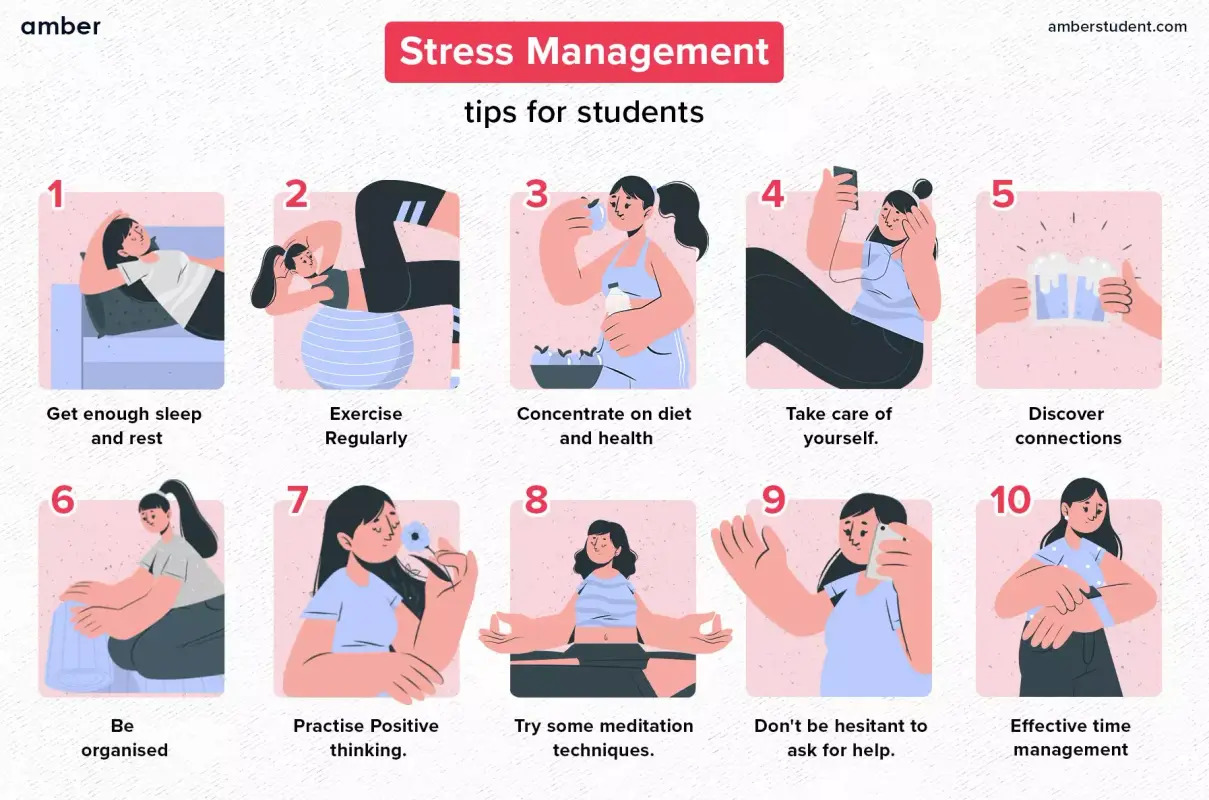
Introduction
Stress is a natural response to challenging situations, but when it becomes overwhelming, it can take a toll on your mental and physical health. Effective stress management is crucial for maintaining a balanced and healthy lifestyle. This article will provide you with practical tips to manage stress effectively, ensuring you can tackle life’s challenges with a smile.
We’ll cover everything from identifying stress triggers to implementing physical, mental, and lifestyle changes. By the end of this article, you’ll have a toolkit of strategies to help you manage stress and improve your overall well-being.
Identifying Stress Triggers
Understanding what causes your stress is the first step in managing it. Personal stressors can vary widely from person to person, so it’s essential to identify what specifically affects you.
- Keeping a Stress Diary: Track your stress levels and note down what triggers them. This can help you recognize patterns and common triggers.
- Recognizing Patterns: Look for recurring themes in your stress diary. Are there specific situations or people that consistently cause stress?
- Short-term vs. Chronic Stress: Differentiate between temporary stressors and ongoing issues. Addressing chronic stress is crucial for long-term health.
- Early Identification: The sooner you identify your stress triggers, the quicker you can take action to manage them.
Physical Techniques for Stress Management
Physical activity and relaxation techniques can significantly reduce stress levels. Here are some effective strategies:
- Regular Exercise: Engaging in regular physical activity releases endorphins, which can improve your mood and reduce stress.
- Adequate Sleep: Ensure you’re getting enough rest. Lack of sleep can exacerbate stress and make it harder to cope with daily challenges.
- Healthy Eating: A balanced diet can help stabilize your mood and energy levels.
- Relaxation Techniques: Practices like yoga and meditation can help calm your mind and reduce stress.
- Breathing Exercises: Simple breathing exercises can provide immediate relief from stress.
Mental and Emotional Strategies
Managing stress isn’t just about physical techniques; mental and emotional strategies are equally important.
- Cognitive Behavioral Techniques: Challenge negative thoughts and replace them with positive ones.
- Mindfulness: Stay present and focus on the here and now. This can help reduce anxiety about future events.
- Positive Thinking: Use affirmations to boost your confidence and reduce stress.
- Journaling: Expressive writing can help you process your emotions and gain perspective.
- Professional Help: Don’t hesitate to seek help from a therapist or counselor if needed.

Lifestyle Changes for Long-term Stress Reduction
Incorporating lifestyle changes can lead to long-term stress reduction. Here are some tips:
- Time Management: Prioritize your tasks and manage your time effectively.
- Setting Realistic Goals: Set achievable goals and avoid overcommitting yourself.
- Support Network: Build a network of friends and family who can provide emotional support.
- Learning to Say No: Don’t be afraid to decline requests that add unnecessary stress.
- Hobbies and Leisure: Make time for activities you enjoy to relax and recharge.
Workplace Stress Management
Work can be a significant source of stress. Here are some tips to manage stress in the workplace:
- Balanced Work-Life Schedule: Ensure you have a healthy balance between work and personal life.
- Effective Communication: Communicate openly with colleagues and supervisors to address any issues.
- Regular Breaks: Take regular breaks to rest and recharge.
- Ergonomic Workspace: Set up your workspace to minimize physical strain.
- Employee Assistance Programs: Utilize available resources to manage stress.
Conclusion
Managing stress is essential for maintaining long-term well-being. By identifying your stress triggers, using physical and mental techniques, making lifestyle changes, and managing workplace stress, you can effectively reduce stress and improve your quality of life.
Remember, a holistic approach is key. Implement and adapt these strategies to suit your needs, and don’t hesitate to seek professional help if necessary. With the right tools and mindset, you can conquer stress and enjoy a happier, healthier life.
FAQ
Here are some frequently asked questions about stress management:
- What are some common stress triggers? Common stress triggers include work pressure, financial issues, and relationship problems.
- How can I manage stress at work? Effective communication, regular breaks, and a balanced work-life schedule can help manage workplace stress.
- What are some quick stress relief techniques? Breathing exercises, short walks, and mindfulness practices can provide immediate stress relief.
- When should I seek professional help for stress? If stress is affecting your daily life and well-being, it’s important to seek help from a therapist or counselor.
- How can I incorporate stress management into my daily routine? Make time for exercise, relaxation techniques, and hobbies to manage stress effectively.